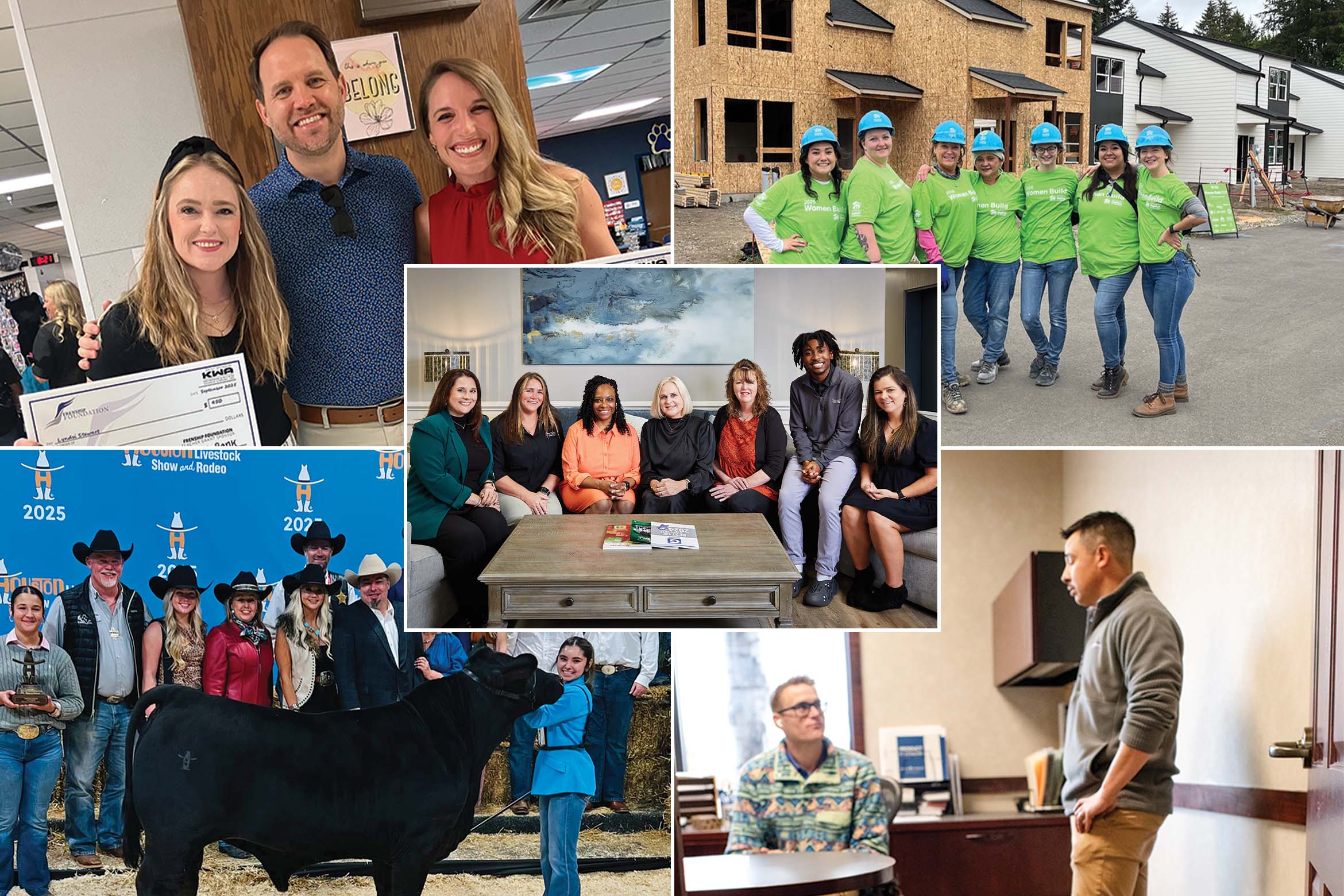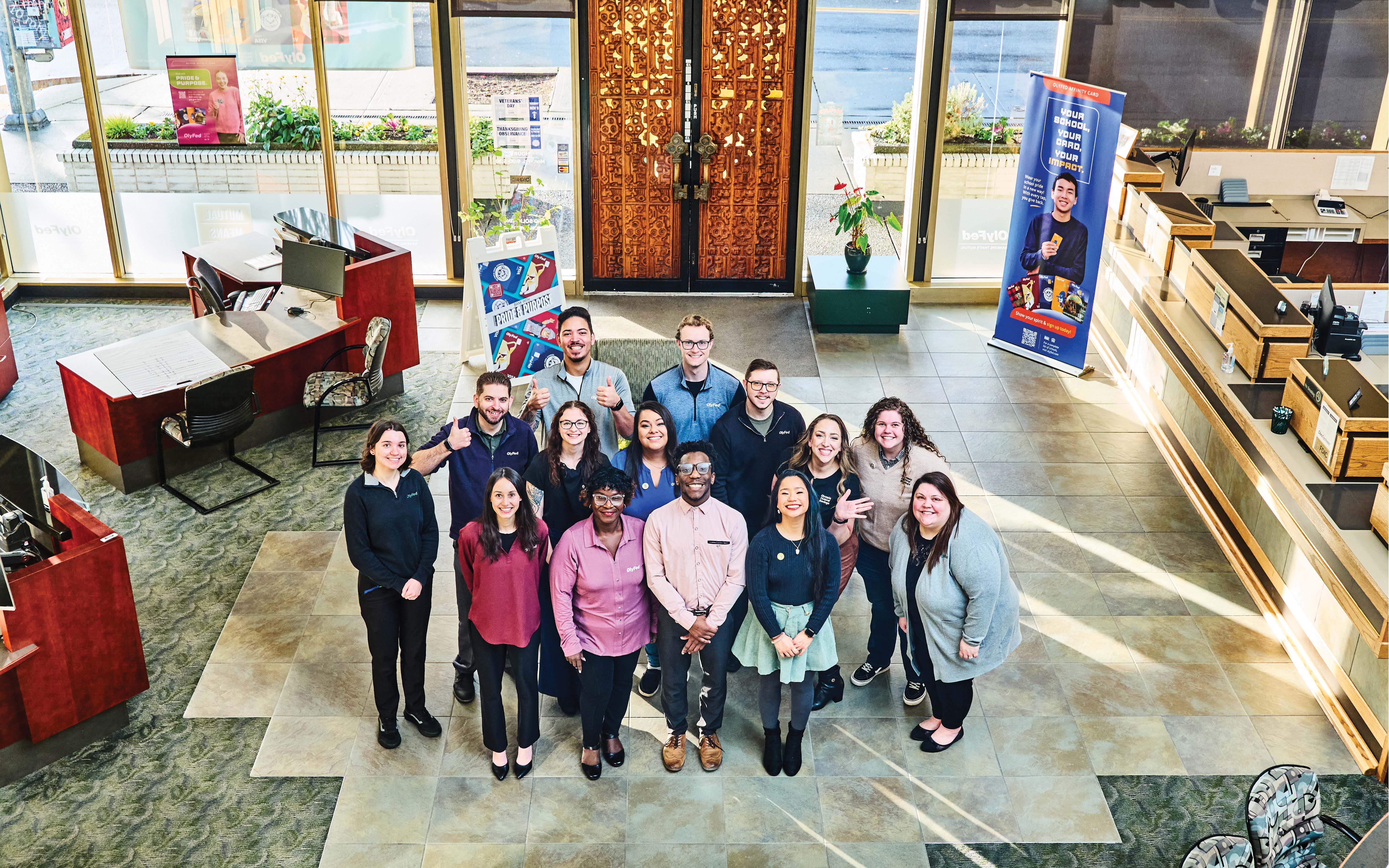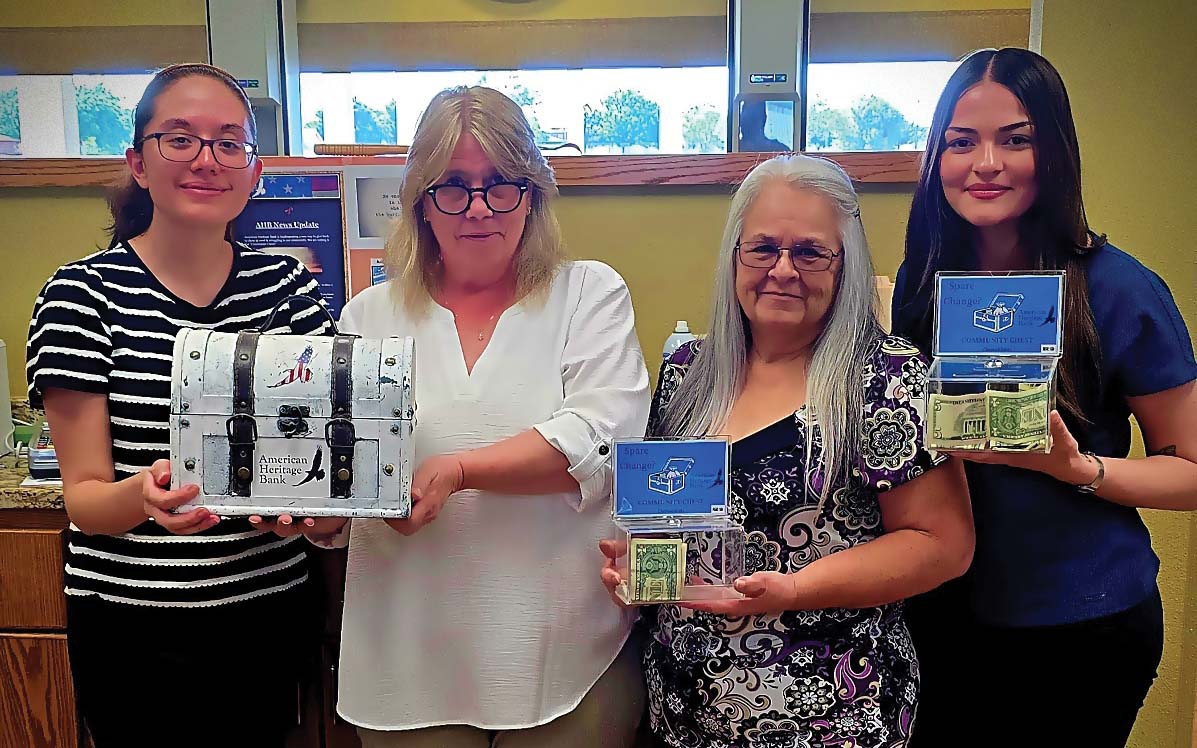The idea that community banking can be a force for positive change is at the heart of Beneficial State Bank, which engages its customers through financial activism.
Beneficial State Bank’s financial activism
December 01, 2021 / By Roshan McArthur
The idea that community banking can be a force for positive change is at the heart of Beneficial State Bank, which engages its customers through financial activism.
Name:
Beneficial State Bank
Assets:
$1.5 billion
Location:
Oakland, Calif.
The team at Beneficial State Bank believes that banking has the power to bring about radical change. That’s why it’s driven by an ambitious mission that puts people, planet and prosperity front and center.
The $1.5 billion-asset community bank in Oakland, Calif., wears this mission proudly. Founded in 2007 with a focus on community development, the community development financial institution (CDFI) has goals that extend far beyond its West Coast communities. Visit its website and you’ll find issues like the shortage of affordable housing, the climate crisis and the problem of white supremacy taking center stage. Customers are invited to become financial activists, taking action with their deposits to build a more inclusive economy for all.
It’s a mission that doesn’t pull any punches, and CEO Randell Leach is aware that it aims very high, admitting with amusement that his team at the bank is “a bit of a different breed.”
“We believe [return on equity] is an important consideration, because financial health matters to us, but we also look at where we maximize our social impact or our environmental impact, and we optimize across these triple bottom lines.”
—Randell Leach, Beneficial State Bank
Beneficial State Bank was born from a bold idea and a gift of capital from activists and philanthropists Kat Taylor and Tom Steyer. When it comes down to it, though, the community bank’s mission is radically simple. What underpins its work is a belief that banking can be a vehicle for positive change.
“Most organizations … are like, ‘Where is the most profitable market segment?’” Leach says. “So, you’re focused on ROE [return on equity] as a measure of growth and earnings. We believe that is an important consideration, because financial health matters to us, but we also look at where we maximize our social impact or our environmental impact, and we optimize across these triple bottom lines. What we do is we take that ethos and apply it to all of our decision-making in our product development or marketing. It’s how we look at everything.”
To that end, Beneficial State Bank is affiliated with several change-making organizations. It’s a CDFI, which means that 60% of lending is made to low- and moderate-income customers or underserved communities. The community bank is a member of the Global Alliance for Banking on Values, a worldwide consortium of financial institutions calling for transparency and support of economic, social and environmental sustainability. And it’s one of a handful of financial institutions with B Corp certification, a commitment overseen by the nonprofit B Labs that verifies the community bank’s commitment to social and environmental performance, public transparency and legal accountability.
Beneficial State Bank achieved its B Corp status in 2012 and renews it every three years. Leach highly recommends the process to other community banks. “There’s collective learning and feedback that goes into those standards,” he says, “so any organization, including a bank, that goes through that is going to learn a lot. You do that a number of times, and you embed it in your culture. It’s an incredibly powerful way to have your organization adapt and grow and be true to what you really want to achieve.”
A ‘powerful economic model’
Beneficial State Bank has a rather unusual business model. Its primary investor is the Beneficial State Foundation, a financial justice nonprofit that evaluates the bank’s impact and advocates for systemic change within the industry. The two organizations work hand in hand, helping a broad group of communities that they believe have been left behind by the traditional banking industry.
“We want to make sure we provide real value for folks. The return from that value creation flows back to the benefit of Beneficial State Foundation, and the foundation is governed in the public interest as a nonprofit. That’s a very powerful economic model.”—Randell Leach, Beneficial State Bank
As of December 2020, the foundation and the community bank had made $33 million in loans to women-owned businesses, $275 million for affordable housing projects and $135 million to the environmental sustainability sector. The bank recently set up a branch inside the world’s greenest commercial building, the Bullitt Center in Seattle.
“We go out and we do good things in the community,” Leach says, “We charge a fair economic return. We’re not trying to do anything extractive. We want to make sure we provide real value for folks. The return from that value creation flows back to the benefit of Beneficial State Foundation, and the foundation is governed in the public interest as a nonprofit. That’s a very powerful economic model, and it also creates some different entities to allow us to tackle things a little bit differently.”
Leach believes all businesses should look for opportunities in the crises that face the world. “Any industry that you’re already in, [ask yourself], ‘What are the opportunities to shift it and have it be a force for good?” he says. “I believe those institutions that do take that paradigm shift will really reap tremendous rewards financially, but they’ll also get tremendous employee satisfaction.”
The first bank union contract in a generation
In March 2020, workers at Oakland, Calif.-based Beneficial State Bank did what few bankers have ever done. They unionized.
This September, they ratified a union contract. The terms included a minimum hourly wage of $20.50 or 125% of the living wage calculation, whichever is higher, as well as a minimum of two weeks’ paid vacation and up to 12 days of sick leave. Beneficial State Bank CEO Randell Leach believes it’s the first time that bank workers have signed a union contract in 40 years.
While fighting for a $15 federal minimum wage alongside the Communication Workers of America (CWA), the bank found the two organizations had common values. So, when the union approached it about talking to its employees, Leach says bank leadership was open to the idea, remained neutral and supported its employees’ right to self-determination.
“We’ve always believed in workers’ rights and empowerment,” he says.
Subscribe now
Sign up for the Independent Banker newsletter to receive twice-monthly emails about new issues and must-read content you might have missed.
Sponsored Content
Featured Webinars
Join ICBA Community
Interested in discussing this and other topics? Network with and learn from your peers with the app designed for community bankers.
Subscribe Today
Sign up for Independent Banker eNews to receive twice-monthly emails that alert you when a new issue drops and highlight must-read content you might have missed.
News Watch Today

Join the Conversation with ICBA Community
ICBA Community is an online platform led by community bankers to foster connections, collaborations, and discussions on industry news, best practices, and regulations, while promoting networking, mentorship, and member feedback to guide future initiatives.













